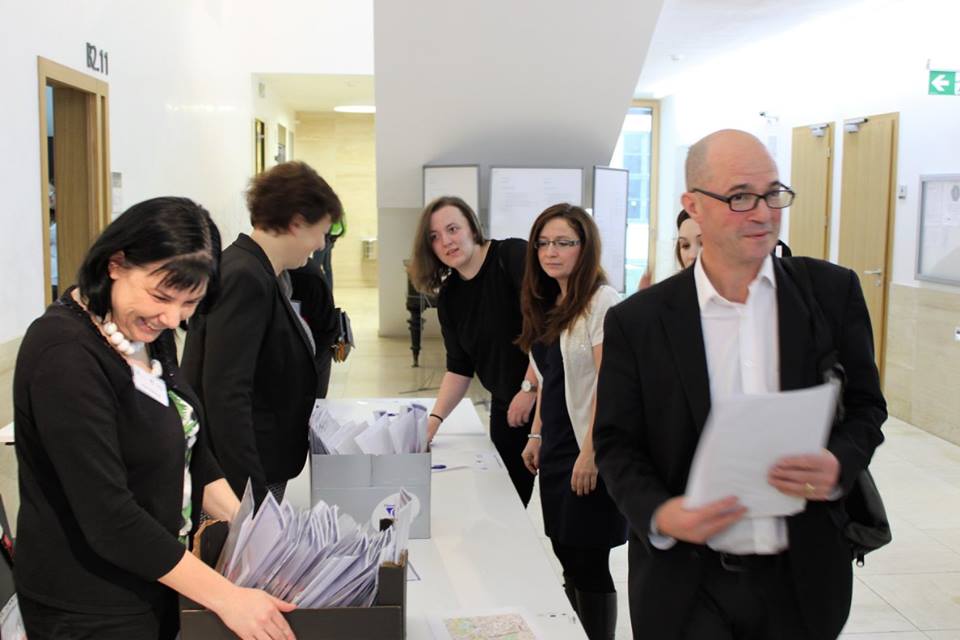by Michael Kilburn, Vice-Chair OHA International Committee
On Feb 15-16, the Czech Oral History Association held its annual conference, this year entitled, “The Many Faces of Oral History: From Theory and Education to Research, Education, and Popularization” at Masaryk University in Brno, Czechia (Czech Republic). There were indeed many faces represented, including a variety of disciplines from History, Sociology, and Economics to Education, Ethnology, and Cultural Studies, and a number of academic and public institutions from across the region. The Oral History program at Charles University and the Oral History Center at Prague’s Institute for Contemporary History were well represented by faculty and students, but others also came from a selection of universities, institutes, and museums from Slovakia to west Bohemia.
This author, invited as one of the plenary speakers, was the only non-Central European and the only one presenting in English (I apologized to my gracious hosts both for my incapacity in Czech and for the neo-colonial impulse of everyone to switch fluidly to English in my presence). Ironically, my presentation, on the Czech Underground rock band, The Plastic People of the Universe, was the most esoteric and specifically local topic, while others addressed a range of topics -methodological, theoretical, and substantive- of much broader relevance. Generally, the level of sophistication, global awareness, and interdisciplinary fluency was inspiring.
Over two full days of multiple sessions, the speakers demonstrated a strong grasp of theory and method and the range of projects represented combined a strong and specific grasp of local geography, culture, and history with a broad awareness of the inductively global relevance of their research. All oral histories -to paraphrase Tip O’Neill- are local, but this regional conference clearly demonstrated that they are all increasingly and self-consciously part of a global movement and conversation. Parallel sessions focused on theory and method, education and popularization, memory, regional research and the role of museums and public institutions. The groundedness of the student participants in OH theory and the specificity of their practice was particularly notable.
The host institution, the faculty of arts at Masaryk University, was gracious and accommodating, with excellent facilities and logistics, the city of Brno was beautiful, and the level of scholarship and engagement by participants was inspiring and energizing. The conference included specific attention to local culture, with an evening of traditional Moravian song and dance at the national museum and a city tour of functionalist architecture, but the overall impression was one of fluency, outreach, and engagement with a global community of scholars. While the Czech Oral History Association was founded only 10 years ago, the breadth, focus, energy, and momentum of its achievements is impressive, consolidating a strong community of scholars and a variety of academic and public institutions in its network. The conscientious and systematic efforts of COHA to develop the capacity and professionalism of oral history practitioners in central Europe is a model of entrepreneurship, professional development, and best practice that bodes well for the future of OH in the region and beyond.
It was an honor to participate in this conference; many thanks and congratulations to the organizers and participants.

